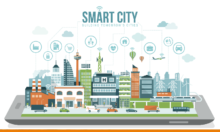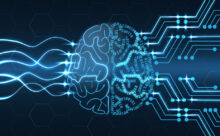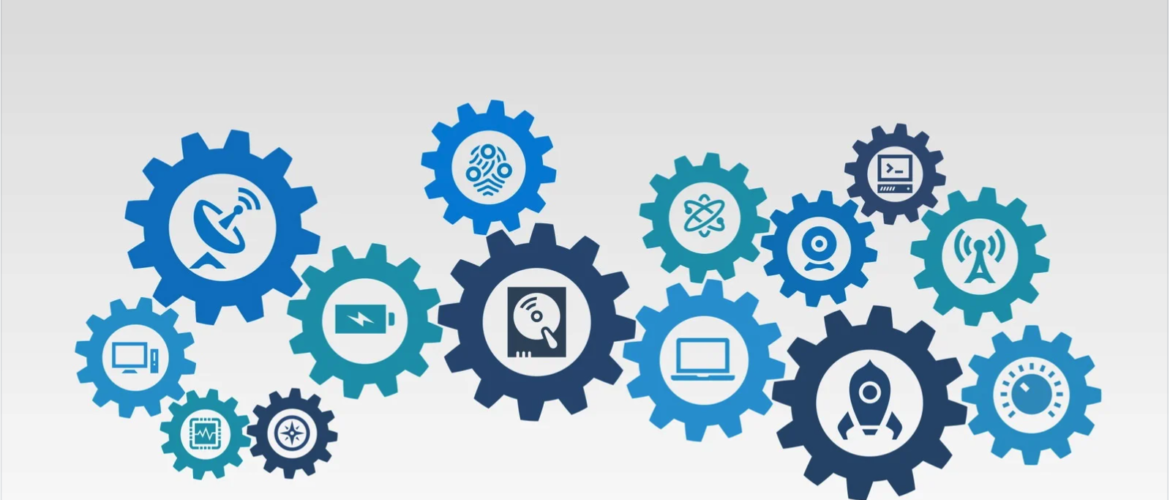Libraries are a vibrant, essential part of local communities and places of learning. They offer free access to educational resources, provide accessible information and technologies, and participate in networks that enhance access to resources outside the school or community. According to Somi and De Jager (2005), the library engages the users in activities intended to make them critical thinkers, problem solvers, independent information seekers and lifelong learners.
Our communities, whether they be towns, cities, Indigenous communities, campuses, schools, organizations, or communities of common interests, are powered by the people. Libraries empower the people. They fuel communities by providing resources, programs, services, and support for self-directed growth and development. Libraries have always been, and always will be, for the people.
Kerry Badgley, OLA President 2018
OLA Super Conference
A few weeks ago, we had the opportunity to attend the Ontario Library Association’s (OLA) 25th anniversary Super Conference, Canada’s largest annual library and information event. This four-day action packed conference focused on how libraries are transforming themselves in this digital world by rethinking space, developing next-generation learning management systems, creating collaboratories and spurring innovation. They value the user experience, becoming spaces that are user-centred rather than document-centred. Breakout sessions on trends of digital privacy, smart cities, artificial intelligence, and digital scholarship labs showcased how libraries are driving technology adoption and moving people into the future.
Digital Privacy
 As part of a fast-moving digital landscape, libraries are working at understanding their users’ digital footprint and the wider security implications. Libraries are defenders of intellectual freedom and advocate for privacy and data literacy through their collections, retention and storage, and use of information. They are also acting as infomediaries to provide specialized information to those less technologically skilled about privacy concerns raised by new technologies. An example of this is the Toronto Public Library’s Digital Privacy Project, a Canadian-specific resource to train public library staff how to teach others about online threats and what tools to use to protect personal data.
As part of a fast-moving digital landscape, libraries are working at understanding their users’ digital footprint and the wider security implications. Libraries are defenders of intellectual freedom and advocate for privacy and data literacy through their collections, retention and storage, and use of information. They are also acting as infomediaries to provide specialized information to those less technologically skilled about privacy concerns raised by new technologies. An example of this is the Toronto Public Library’s Digital Privacy Project, a Canadian-specific resource to train public library staff how to teach others about online threats and what tools to use to protect personal data.
The public library has long been a protector of, and advocate for, people’s right to non-prejudiced access to the world’s information. With this digital privacy initiative, we will facilitate the free exchange of information and ideas that is a cornerstone of a democratic society, while protecting individuals’ right to privacy and choice.
Pam Ryan, Toronto Public Library’s Director of Service Development and Innovation
Smart Cities
 Smart technologies are helping cities, municipalities and regions address community challenges, better allocate resources, and plan for the future – and it all starts with data. This emergence of smart cities is leading to the rise of the knowledge librarian as the custodian of smart-city data. The library’s transformation is connected to a broader urban development movement that is transitioning into a knowledge economy. Public libraries power smart cities to help create a strong sense of community, provide technology hotspots, support reading, encourage lifelong learning, develop digital content and drive innovation.
Smart technologies are helping cities, municipalities and regions address community challenges, better allocate resources, and plan for the future – and it all starts with data. This emergence of smart cities is leading to the rise of the knowledge librarian as the custodian of smart-city data. The library’s transformation is connected to a broader urban development movement that is transitioning into a knowledge economy. Public libraries power smart cities to help create a strong sense of community, provide technology hotspots, support reading, encourage lifelong learning, develop digital content and drive innovation.
Public libraries are defenders of digital privacy and have expertise in data policy and information management. We have long played a role in city building and welcome the opportunity to discuss how we can continue to evolve this role in the civic data realm.
Ana-Maria Critchley, Communications & Stakeholder Relations, Toronto Public Library
Artificial Intelligence (AI)
 Data-intensive research and new analytical methods are impacting how libraries support their users. Data is starting to assume new currency for connecting people and ideas, and the need grows for librarians’ algorithmic literacy, transparency and oversight. Algorithms shape how we find, consume, share and understand information – from search engines to library discovery systems. Adding an intelligent side to all applications at the library is a real opportunity to understand the patterns in user behaviour and adapt to their needs. Libraries are becoming more aware of how algorithms and big data sort and shape our digital world.
Data-intensive research and new analytical methods are impacting how libraries support their users. Data is starting to assume new currency for connecting people and ideas, and the need grows for librarians’ algorithmic literacy, transparency and oversight. Algorithms shape how we find, consume, share and understand information – from search engines to library discovery systems. Adding an intelligent side to all applications at the library is a real opportunity to understand the patterns in user behaviour and adapt to their needs. Libraries are becoming more aware of how algorithms and big data sort and shape our digital world.
We would be wise to start thinking now about machines and algorithms as a new kind of patron. Treating AI as a patron means thinking about how we can serve them and help them improve. Part of that is helping them explain their predictions and recommendations.
Michael Ridley, Librarian Emeritus at the University of Guelph, past ORION Board of Director
Digital Scholarship Lab
![]() Libraries are becoming a transformative space for teaching and learning, providing innovative tools for collaborative research (“collaboratories”), data visualization and preservation. Higher education libraries, such as McMaster and Brock University, are digital scholarship labs that facilitate the creation, discovery, preservation, and dissemination of knowledge. Libraries are staffed by individuals with specialized skills who support work in the digital environment. Research is being defined in a digital context of data management, metadata services, data visualization, GIS and mapping, and high performance computing.
Libraries are becoming a transformative space for teaching and learning, providing innovative tools for collaborative research (“collaboratories”), data visualization and preservation. Higher education libraries, such as McMaster and Brock University, are digital scholarship labs that facilitate the creation, discovery, preservation, and dissemination of knowledge. Libraries are staffed by individuals with specialized skills who support work in the digital environment. Research is being defined in a digital context of data management, metadata services, data visualization, GIS and mapping, and high performance computing.
Digital scholarship is by its nature collaborative, multi-disciplinary and draws upon a broad range of expertise from across librarianship, research data management, data visualization, data processing, digital preservation, and digital pedagogy. The Digital Scholarship Lab (DSL) will be a hub to explore, discover, create, and play with data and visual tools, methods, and objects, and to contribute that knowledge back to the community.
Digital Scholarship Lab, Brock University
21st Century Library
 Ontario’s libraries are about more than just books. Libraries provide equal access to the cutting-edge technologies of the 21st century, allowing anyone to learn, create and collaborate. Libraries are identifying emerging trends in technology and evolving to meet the changing needs of the communities they serve. They are transforming into creative community hubs wired for the digital world. ORION’s digital infrastructure, including our network, helps libraries share critical infrastructure with each other; seamlessly deliver training programs and workshops via rich media; enhance access to research resources at post-secondary institutions in Ontario and around the world; and access cloud-based services for administration and security.
Ontario’s libraries are about more than just books. Libraries provide equal access to the cutting-edge technologies of the 21st century, allowing anyone to learn, create and collaborate. Libraries are identifying emerging trends in technology and evolving to meet the changing needs of the communities they serve. They are transforming into creative community hubs wired for the digital world. ORION’s digital infrastructure, including our network, helps libraries share critical infrastructure with each other; seamlessly deliver training programs and workshops via rich media; enhance access to research resources at post-secondary institutions in Ontario and around the world; and access cloud-based services for administration and security.

